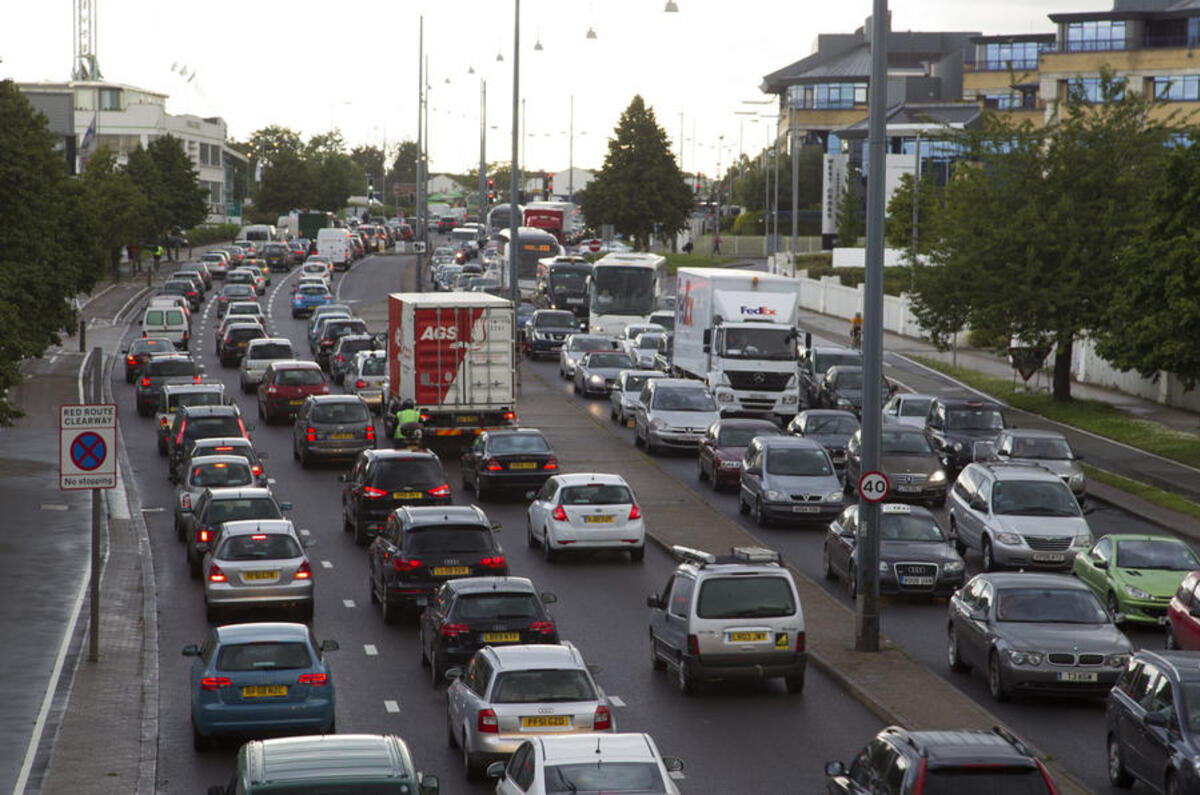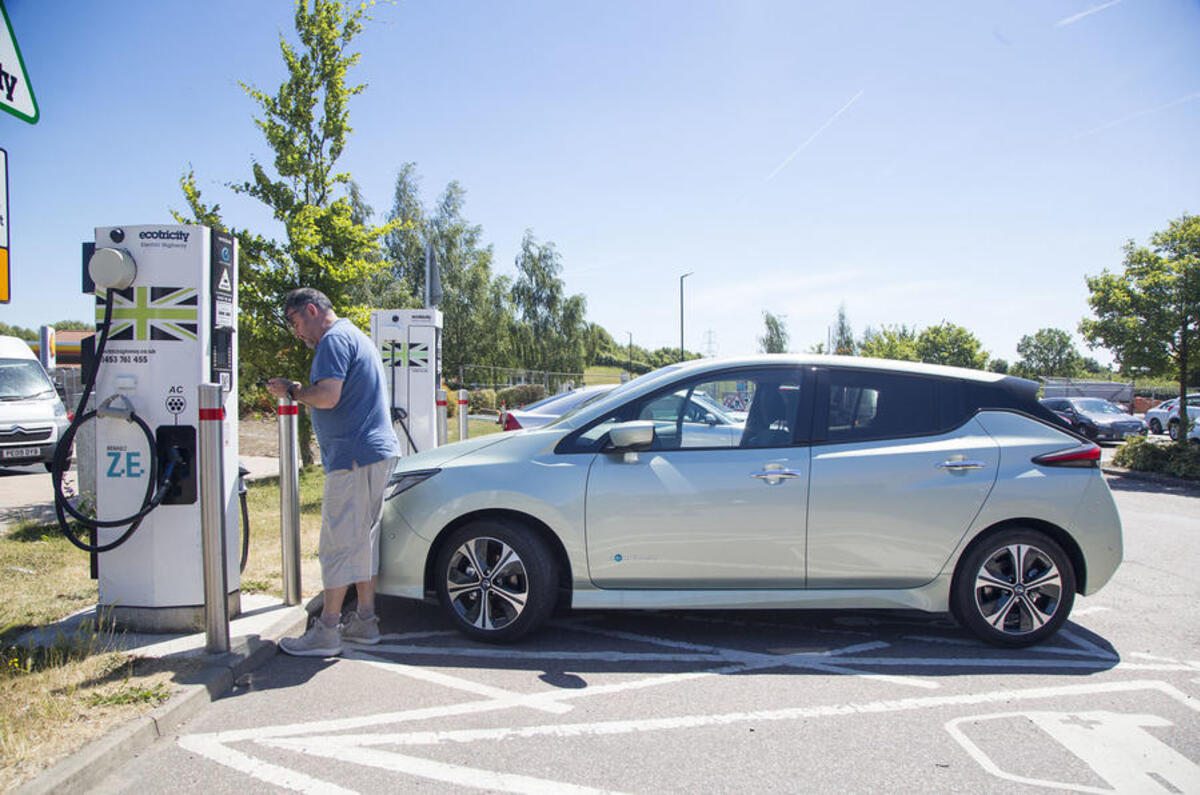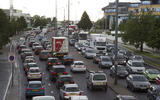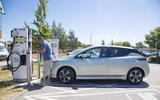The UK government has set goals of accelerating the uptake of zero-emissions vehicles and shifting people out of cars by making public transport, cycling or walking "natural first choices" for travel. It has also committed to matching the European Union’s tough fleet CO2 emissions targets.
The steps that will be taken to achieve those goals will be outlined in a new Transport Decarbonisation Plan that's due to be published at an environment summit in November. The plan will be a key part of the government’s goal to achieve net-zero greenhouse gas (GHG) emissions by 2050.
The Department for Transport (DfT) recently published an official document, entitled Setting the Challenge, that outlines “where we are today and the size of emissions reduction needed”. This doesn't set out specific policies, which will be developed as a result of public consultations and workshops, but outlines "strategic priorities". These include:
● Making public transport and active transport (such as cycling and walking) “the natural first choice for our daily activities” so that people use their cars less. This will involve reducing public transport's emissions and making it convenient and cost-effective, plus developing Mobility as a Service platforms.
● Decarbonising road vehicles, with a focus on “ensuring a supportive regulatory framework” and “building [consumer] trust in new technologies”.
● Making the UK a “world leader in green transport technology and innovation” by encouraging research and development investment in new technology.
Westminster is already aiming to ban sales of all non-electric cars by 2035 or sooner, with the aim “to put the UK at the forefront of the design and manufacturing of zero-emissions vehicles”.
The DfT publication claims that transport is now the largest contributor to the UK's domestic GHG emissions, contributing 28% of the total. Passenger cars were responsible for 55% of domestic GHG transport emissions, although total GHG production by such vehicles has dropped 5% since 1990 despite total miles travelled rising by 22%.
However, the report also notes that average CO2 emissions per mile for new cars has risen since 2016. While it acknowledges the dramatic decline of diesel sales has played a role in this, it cites fast-rising sales of SUVs as the main reason.
The report note that sales of ultra-low-emissions vehicles – which includes electric cars – have increased massively in recent years, from around 1300 in 2010 to more than 230,000 today.
It added that more EV charging infrastructure will be required to continue that growth, given that 20-30% of British motorists don't have access to off-street parking where private chargers could be located. It also calls for a "roaming solution" that would allow EV drivers to access any public charger through a single payment method.
The Setting the Challenge document also outlines steps to reduce GHG emissions from goods transport, public transport, air travel and maritime travel.
The publication is the first step in a planned seven-month process that will lead to the publication of the Transport Decarbonisation Plan in November. That will include a number of planned publish feedback opportunities, starting later this year. The full document can be read on the DfT website here.
READ MORE
Petrol and diesel-engined car sales ban could be introduced by 2032











Join the debate
Add your comment
I've always found...
...the idea of public transport quite appalling, more so these days. I'm prepared to put up with it in order to fly, not to travel when there are perfectly good roads on which to drive myself and my family.
Re-Roads.
I don't know where you drive daily but, round our way your lucky to drive 100 yards without having to dodge round a hole in the road, and yes, it must be hard to keep roads in good condition, but as all know local government budgets are being slashed to the Bone because of Brexit and thus, departments like Roads, Parks etc have little or no money hence the state our roads are in.
The times are changing.
As much as we don't like it, the times are changing and the status quo will only be an option for the very rich. Even before the corona virus reared it's ugly head, we needed to reduce car use. Now that the government will have to increase taxes massively to recoup all the money spent on furloughed workers, etc. things will get even tougher. Cars will be an easy target.The current situation will surely lead to a thorough re-evaluation of what we can and cannot do without in our lives. Many on here are taking the lazy option "I can't possibly use any other form of transport thsn my car".
No, you need to look again; live nearer to work, change jobs andvfamily/friends. If not, accept that your journey will take longer or be more expensive. Or both. I used to drive to work. For over 5 years now I have used the train and cycle. In my case, it's slightly more expensive but quicker, more predictable journey time 95% of the time and much more relaxing. When I drive now I actually enjoy it more as it is no longer a work-related chore!
Car dependancy has to end - the sooner we get used to it the easier that transition will be.
That's all very commendable,
And I forgot to mention, in
Very sad times ahead for true car fans
I use public transport and my bicycle as much as I can instead of the car, but it's not something I like doing, especially using unreliable, expensive, unsafe public transport.
Current EVs are far too expensive and compromised too.
But on top of all that, I've been a car enthusiast for as long as I can remember, and a responsible road user too, so if EVs do improve a lot but can only be used in a limited fashion due to future government plans, wouldn't it be nice to make sure all the bad drivers and criminals (e.g. driving without a licence / insurance, using cloned number plates, constantly speeding / tailgating, commiting road rage etc.) were restricted from car ownership / use before the rest of us?
Pc/Hr....
Two sets of letters that make your last statement impossible, political correctness and human rights, they're what hold back a lot of legislation to remove criminals of the Roads, I think there is no way we will ever have transport to suit all working people.